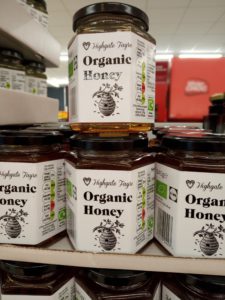Understanding Micronutrients : A Complete Guide About Vitamins, Minerals, Health Benefits And More
Micro may mean small, but micronutrients are far from insignificant. Without a regular supply of micronutrients, our bodies would literally starve. Micronutrients include all vitamins and minerals .
We take it in, often without realising, and are an essential part of a diabetic diet. As an example, celery contains well over a dozen different micronutrients including a number of vitamins, potassium, calcium, iron and more.
Micronutrients such as niacin, magnesium, calcium, zinc, carnitine, inositol, alpha-lipoic acid, as well as vitamins E, B6 and D all play an important role in the prevention and management of patients with diabetes.
Though diabetes is a serious disease and is often caused by autoimmune processes – with the right treatment – living a longer, healthier life can be made easier.
THE ROLE OF MICRONUTRIENTS IN DIABETIC HEALTH

Micronutrient Miracle: The 7-day plan to improve energy, prevent disease and lose weight fast!
Vitamin E – Confers protection against diabetes by protecting pancreatic B-cells from oxidativestress induced damage; May prevent progression of type I diabetes.
Vitamin D – Lowers risk of type I and 2 diabetes; Suppresses inflammation of pancreatic B-cells. Vitamin D receptor gene linked to diabetes.
Vitamin B3 – Preserves B-cell function in type I diabetics; Part of GTF (glucose tolerance factor) which facilitates insulin binding.
Vitamin B12 – Deficiency common in diabetics because metformin depletes B12.
Chromium – Helps insulin attach to cell’s receptors increasing glucose uptake into cell; Deficiency can cause insulin resistance; Supplementation trials show dose-dependent benefits for type II diabetics.
Biotin – Stimulates glucose-induced insulin secretion in pancreatic B-cells; High dose biotin can improve glycemic control in diabetics.
Magnesium – Deficiency reduces insulin sensitivity; Low magnesium exacerbates foot ulcers in diabetics.
Zinc – Needed in the synthesis, storage and secretion of insulin; Protects pancreatic B-cells from damage; Affects the expression of genes linked to diabetes.
Lipoic Acid – Enhances glucose uptake in skeletal muscle tissue; Improves glucose tolerance in type 2 diabetics; very effective treatment for diabetic neuropathy.
Glutathione & Cysteine – Glutathione-containing enzymes protect B-cells which are particularly sensitive to oxidative stress; Type 2 diabetics have abnormal antioxidant status; Supplementation with the glutathione precursor cysteine restores antioxidant status. Glutathione is very helpful with modulating inflammation cascades so common in autoimmune processes.
Coenzyme Q10 – Protects kidney from diabetes related damage; Improves glycemic control in type 2 diabetics.
Glutamine – Stimulates a hormone called GLP-I (glucagon-like peptide I) that regulates insulin secretion after meals; Improves insulin signaling and sensitivity.
Carnitine – Reduces and even prevents pain from diabetic neuropathy; Improves insulin sensitivity by increasing glucose uptake and storage.
Inositol – Evidence suggests that inositol may be effective in treating diabetic neuropathy.
Vitamin C – Lowers glycolysated hemoglobin (HbA1c) and fasting and post-meal glucose levels in type 1 and type 2 diabetics.
How to include more Micro-Nutrients in Your Diet
Although needed only in small amounts, micro-nutrients are essential for the proper functioning of every system in the body and are vital for good health. There are two classes of micronutrients, vitamins and minerals.
Each vitamin and mineral has a specific role in bodily function. Our bodies cannot make all of these micro-nutrients, so they must be supplied through the diet.
Lidl have a variety of healthy products such as organic honey,herbal teas and a range of different healthy spices!
I think everyone should go into Lidl and have a browse around and see what they can find which is healthy!
Why dont we all pick one item in Lidl which is healthy and take a photo of it and leave it in the comment section below or send me an email!
See below photos of some of their healthy products!
Apple Cider Vinegar is very healthy with few calories and has a low glycemic index!
Chillies are a good source of fibre and are great in stir frys and casserol dishes!
Lidl have a great variety of healthy herbal teas!My favourite is their peppermint tea!
Lidl sell a variety of organic products such as organic honey which is a healthy alternative to processed white sugar!
Different foods contain different levels of vitamins and minerals, so it’s important that you eat a wide variety of foods from the different food groups and a variety within each food group, to make sure you get an adequate supply of all the micro-nutrients your body needs.
Vitamin A is an important micronutrient needed for healthy eyesight and gums, Vitamin C for a healthy functioning immune system, and Vitamin E is a powerful antioxidant which helps fight free radical damage in the body.
We need vitamin D for strong bones and immune function, and our B vitamins for energy production, nervous system health and for proper digestion.
There are also essential minerals that play important roles in the body such as iron needed for red blood cell production, calcium for strong healthy bones and teeth, magnesium for nervous system health, and zinc for healthy skin, reproductive and immune function.
Selenium is also an important mineral which acts as an antioxidant to protect the body from chronic diseases and premature aging.
Micronutrients
Vitamin A – Milk, cheese, eggs (yolk), orange and yellow fruits and vegetables
Vitamin B – Legumes, wholegrain cereals, nuts, seeds, green leafy vegetables
Vitamin C – Citrus fruits, broccoli, strawberry, parsley, cabbage
Vitamin D – Citrus fruits, broccoli, strawberry, parsley, cabbage
Vitamin E – Olives and olive oil, avocado, wholegrain cereals
Iron – Lean meat, green leafy vegetables, legumes
Calcium – Dairy products, almonds, tahini, green leafy vegetables
Magnesium – Nuts, seeds, wholegrains, legumes, green leafy vegetables
Zinc – Lean meat, chicken, fish, sunflower and pumpkin seeds
Selenium – Brazil nuts, wheatgerm, sunflower seeds, oats
For more great Health and Nutrition Tips refer to the websitePositivehealthwellness.com
Recommended Micronutrient Resources
1.http://Micronutrient Diet Recipes (A Beginner’s Guide): The ultimate guide to losing weight, regaining energy and live a healthy lifestyle in 28 days.
2.http://Diabetes: Oxidative Stress and Dietary Antioxidants
3.http://Naked Calories: Discover How Micronutrients Can Maximize Weight Lose, Prevent Dosease and Enhance Your Life
Leave below any comments you have on the above topics or information or send an email to momo19@diabetessupportsite.com








